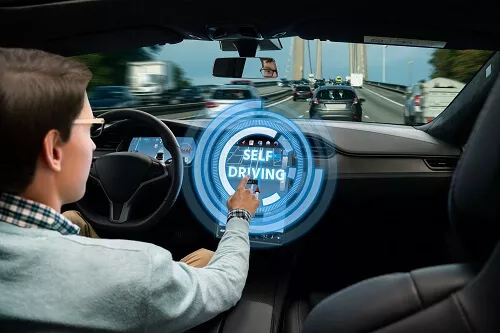The Legal Impact of Self-Driving Car Data: Opportunities and Challenges in Personal Injury Cases

As autonomous vehicles become more integrated into daily life, the data they generate plays a pivotal role in personal injury cases. Steve Mehr, co-founder of Sweet James Accident Attorneys, emphasizes that this wealth of data offers new possibilities for determining liability, but its use presents significant challenges in legal interpretation. Understanding how this data is used and the complexities it brings is essential for navigating cases involving self-driving cars.
The Role of Data in Personal Injury Cases
Data from self-driving cars can provide critical insights into the moments leading up to an accident. Autonomous vehicles record everything from speed and braking patterns to road conditions and object detection. These details offer a precise, unbiased account of what occurred during an accident, which can be invaluable in personal injury cases where the fault is in question.
For example, data can show whether the vehicle’s sensors detected an obstacle, how the AI system responded, and whether the human driver, if present, intervene appropriately. This type of evidence is often more reliable than human testimony, which can be subjective or incomplete.
Challenges in Data Interpretation
While self-driving car data holds significant potential as legal evidence, interpreting it presents several challenges. Steve Mehr explains that “Self-driving cars are often viewed as the next major advance in transportation because of their potential to improve safety and convenience. But what’s frequently overlooked are the legal challenges when these cars are involved in accidents. As incidents and technology glitches with driverless cars become more common, existing liability laws are struggling to keep up.” This gap in legal frameworks makes it difficult to determine fault, especially when multiple parties, such as manufacturers, software developers, and vehicle operators, are involved. Without clear regulations, courts may face complex questions regarding who is ultimately responsible for AI-driven decisions that lead to accidents.
One of the primary difficulties is understanding how the AI system processes the information it collects. Autonomous vehicles use complex algorithms to make real-time decisions, and these algorithms can be difficult to analyze without expert knowledge. This lack of transparency can make it difficult for legal teams to determine whether the system behaved as expected or if a malfunction occurred.
Privacy Concerns and Data Access
Another hurdle in using self-driving car data as legal evidence is gaining access to the data itself. Since the data is often stored by the vehicle manufacturer or third-party service providers, obtaining it for legal proceedings may require overcoming privacy and ownership issues. Manufacturers may be reluctant to release proprietary information, citing intellectual property protections or concerns over potential lawsuits.
Furthermore, there are privacy implications for drivers and passengers. The data collected by autonomous vehicles can include personal details about location, speed, and driving habits. Lawyers must navigate privacy laws to ensure that accessing and using this data in court does not violate individuals’ rights.
The Future of Self-Driving Car Data in Courtrooms
Despite these challenges, the use of self-driving car data in personal injury cases is likely to increase as technology evolves. Courts will need to establish clearer guidelines on how this data can be collected, analyzed, and presented as evidence. Legal experts will also need to become more familiar with the technical aspects of autonomous vehicles to properly interpret the data in the context of an accident.
Moreover, experts in AI and data analysis will likely play a larger role in court cases involving autonomous vehicles. Their testimony will be crucial in helping judges and juries understand the technical details of how the vehicle’s system functioned during the accident.
Self-driving car data offers both opportunities and challenges as legal evidence in personal injury cases. While this data provides valuable, unbiased insights into how an accident occurred, its interpretation requires specialized knowledge, and issues surrounding data access and privacy must be addressed. As autonomous vehicles continue to increase, legal frameworks will need to evolve to ensure that the use of this data in court is fair, transparent, and in line with privacy laws.






